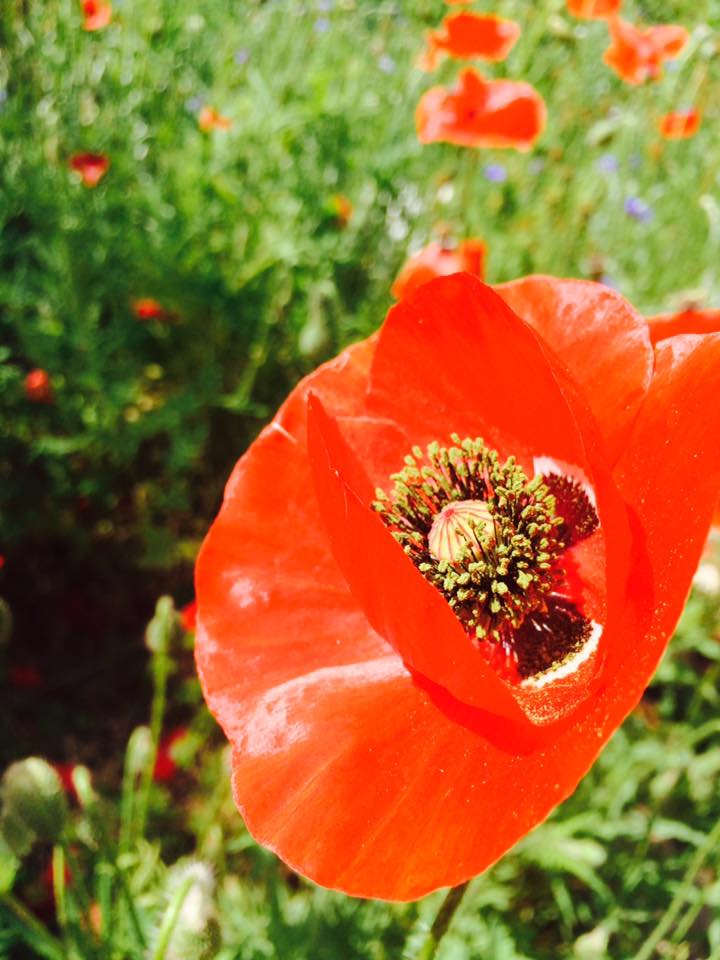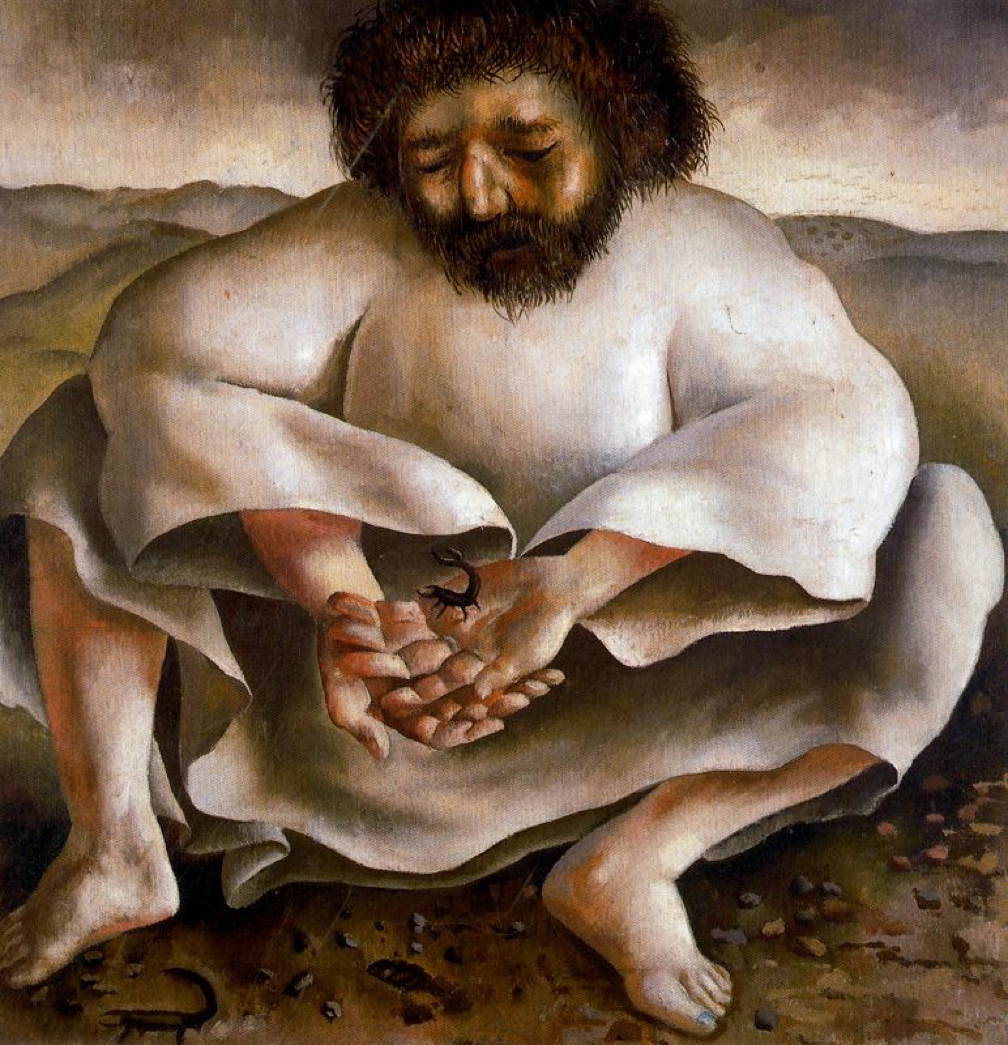Mark 1:4-12
4 John appeared, baptizing in the wilderness and proclaiming a baptism of repentance for the forgiveness of sins. 5 And all the country of Judea and all Jerusalem were going out to him and were being baptized by him in the river Jordan, confessing their sins. 6 Now John was clothed with camel’s hair and wore a leather belt around his waist and ate locusts and wild honey. 7 And he preached, saying, “After me comes he who is mightier than I, the strap of whose sandals I am not worthy to stoop down and untie. 8 I have baptized you with water, but he will baptize you with the Holy Spirit.”
The Baptism of Jesus
9 In those days Jesus came from Nazareth of Galilee and was baptized by John in the Jordan. 10 And when he came up out of the water, immediately he saw the heavens being torn open and the Spirit descending on him like a dove. 11 And a voice came from heaven, “You are my beloved Son;[d] with you I am well pleased.”
The Temptation of Jesus
12 The Spirit immediately drove him out into the wilderness. 13 And he was in the wilderness forty days, being tempted by Satan. And he was with the wild animals, and the angels were ministering to him.

After Jesus was baptized, he was sent out to spend time in the wilderness. Over the years we’ve examined different ideas for why we think he spent time there, why it was necessary, but what we know is that the wilderness experience was the beginning of a new season in Jesus’s life.
We were sitting in church talking about this passage, and I was growing weary within a few minutes of the conversation, trying to understand what all of this could have meant in an indigenous perspective and not an American or western one. It’s new for me to look through this lens at the stories I heard all through childhood, but it’s a challenge I enjoy if I have the time to make connections in Jesus’s life to my own indigenous identity. And in that space, in a conversation about baptism and wilderness experiences, I did.
In native culture, young men at the time of puberty are sometimes called to go out into the wilderness to receive their life’s calling. Sometimes an elder might accompany them, oftentimes they go alone. They enter the wilderness because they know that on the other side they will come out a new version of themselves.
Kavasch and Baar in their book, American Indian Healing Arts, put it like this:
Endurance training and spending nights camping out alone with little or no food help to prepare each youth for the rigors of his spiritual journey. As the time for the quest approaches, rituals of purification, such as fasting and smudging– the burning of one or more sacred substances and bathing in their smoke– take place, accompanied by special prayers.
Then the boy goes off by himself to seek a vision. He spends four or five days and nights fasting, alone with his thoughts, on a windswept butte or within a shallow pit. He learns to deal with fear and find out about his own personal strengths. Each boy also looks for power and meaning in the natural world. The vision quest frequently brings on life-changing visions and dreams that provide glimpses into mystical and spiritual realms beyond his ordinary experiences.
A vision quest draws a person deeper inside himself and at the same time allows him to look at himself from outside. So much does a person learn in the process that in many tribes it is thought to be essential to the proper evolution of a healthy life path. Pete Catches, a noted Lakota medicine man, once said, ‘I do believe every young Indian, about high school age, should do a hanblecheyapi (vision quest) to get direction in life, to know what life is all about.’
I grew up being taught a very negative side of Jesus in the wilderness, when Satan came to him and tried to destroy him and ruin his life calling before it was about to start.
But now, I see something different. It see a kind of communion with the wilderness that taught Jesus about himself, that prepared him for his coming ministry and journey. We cannot know what kind of conversations happened in that quiet, but I can imagine there were a lot of thoughts coming in and out of Jesus’s existence. And in his struggle with spirits– evil and good, past and present– he found himself, his voice, and his own spiritual journey unfolding.

Just as the youth cleanses himself before he enters the wilderness, Jesus cleansed himself– in baptism– and entered into his own wilderness experience. Do you see the sacred connection here?
What if part of Jesus’ experience of the Holy Spirit came in the wilderness, in the place that wasn’t expected?
This is what I see in the wilderness experience of Jesus: a time of calling in the midst of what were often, I’m sure, difficult conditions. Still, he listened. He quieted himself, engaged with the voices and energies around him, asked questions of the world he’d entered into, and received visions and dreams of his future.
Brother, sister, you may be in the wilderness, but that doesn’t mean it’s an empty wilderness.
Glory is still found there. Sacredness, even when it’s uncomfortable, even if you’re alone, even if you’re a little afraid.
A wilderness sometimes still has voices and wind, sun and shade, flowing water.
And many cultures probably have similar practices to this, but growing up in the southern baptist church with little connection to my own native identity, I completely skipped over the wilderness experience of Jesus, because it only had negative connotations. Instead, in some denomination contexts, we are skipping over a beautiful and pivotal time of Jesus’s life: his purification and vision quest– his sending out experience.
So, let’s look at our own wilderness experiences differently. If you are in the middle of your wilderness now, look for what it teaches you. Let the wilderness speak to you, let the lone quiet, perhaps the lonely quiet, breathe something back over you.
And the truth of it is that it is often painful, there are surprises we’re not prepared for, quiet that is too quiet. But instead of running from that pain, lean into it.
Let yourself listen.
Do not hush the wilderness.
Do not rush the learning and the listening, the ending or the beginning, the birth or the re-birth.
Let the wilderness song sink into your bones, let your dreams of the future guide you out and back to a busy and waiting world, ready to welcome you.
And not forget what the wilderness taught you, for it may very well be your namesake.
It may very well be your calling.
Just as Jesus began in his wilderness, so maybe you must begin again in yours.
















